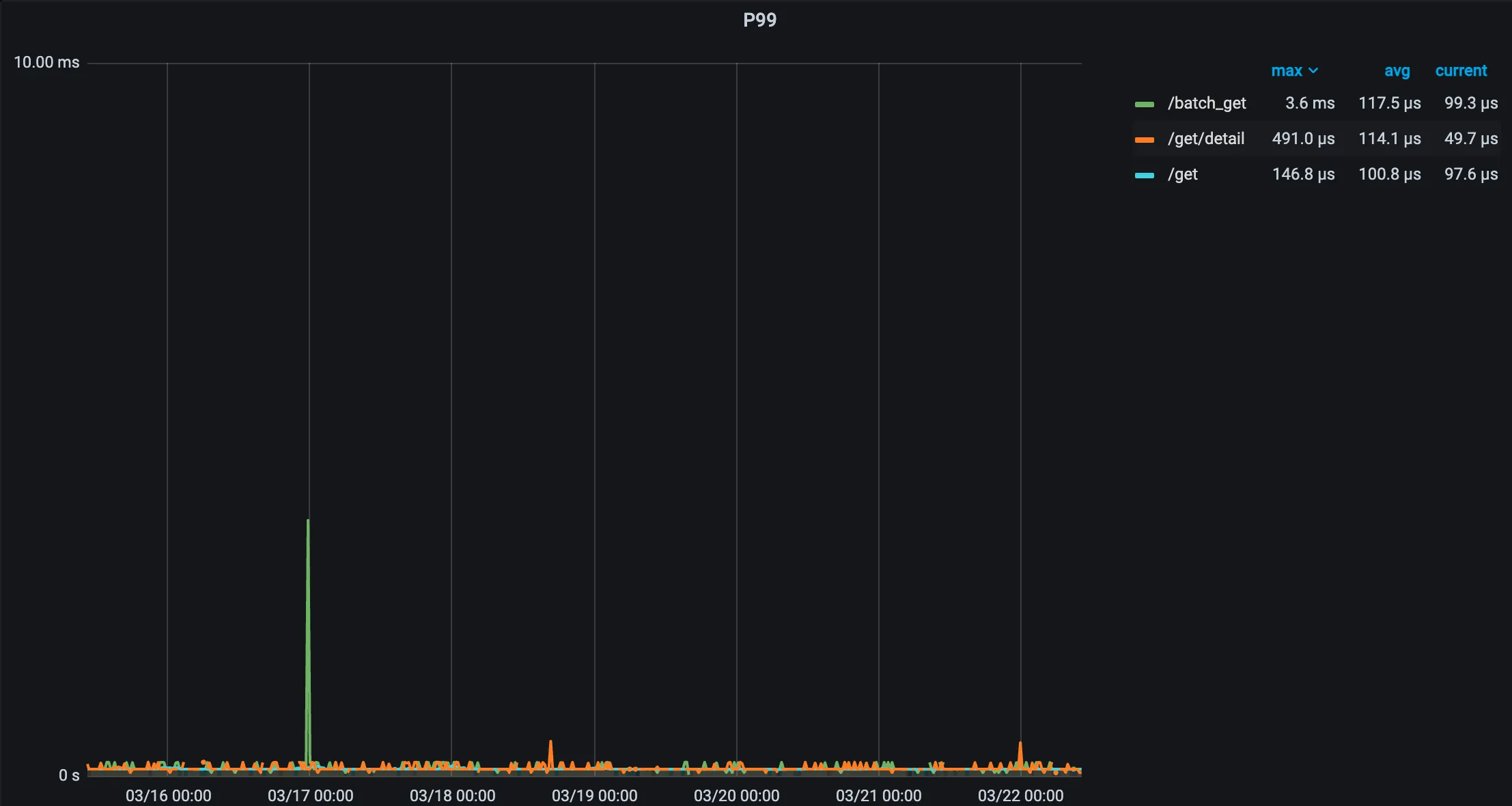背景
随着技术栈的扩展,我们引入了Golang,面临了新的问题:如何在容器化环境中有效地利用GEO-IP库。
此前,我们依赖 ipip.net 的服务,在PHP环境中直接读取物理机上的IP库文件,且通过定期脚本更新。为了解决容器化带来的问题,我们进行了一系列探索和实践。
前期探索
查询资料发现 ipip.net 官方提供了一个 Golang 包,也许可以直接使用。
https://github.com/ipipdotnet/ipdb-go输出结果如下:
{
"country_name": "中国",
"region_name": "北京",
"city_name": "北京",
"location_desc": "中国北京",
"china_admin_code": "110000",
"continent_code": "AP",
"country_code": "CN",
"europe_union": "",
"idd_code": "86",
"isp_domain": "联通",
"latitude": "xxx",
"longitude": "xxx",
"owner_domain": "",
"timezone": "Asia/Shanghai",
"utc_offset": "UTC+8"
}然而,尽管该包能够返回详尽的地理信息,输出结果并未符合我们期望的地区码格式。
我们所期望的IP转地区码的示例结果如下:
中国北京 -> 1_156_110000
印度尼西亚 -> 1_360_000000阅读原有的PHP包代码后,发现是我们自己对识别的结果做了一层映射。
例如 1_156_110000 :
- 1: 亚洲 (对应结果中
continent_code的AP) - 156: 中国 (对应结果中的
country_code的CN) - 110000: 北京 (对应结果中
china_admin_code的110000)
解决方案
Golang中使用
为了解决这个问题,我们需要自己实现一个简单的映射,将地理信息转换成公司内部标准的地区码格式,并将此逻辑封装为一个Golang包以方便复用。
// client.go
type Client struct {
ipdb *ipdb.City
}
func NewClient(ipdbPath string) (*Client, error) {
// ...
}
func (client *Client) Reload(ipdbPath string) error {
// ...
}
// 定义洲映射关系
var continentCodes = map[string]string{
"UN": "0",
"AS": "1",
"AP": "1",
// ...
}
// 定义国家映射关系
var countryCodes = map[string]string{
"CN": "156",
"AX": "248",
"AL": "008",
// ...
}// IP转地区码
type Region struct {
ContinentCode, CountryCode, ChinaAdminCode string
IsChina bool
}
func (client *Client) Ip2Rcode(ip string) Region {
r := newRegion()
//...
}完成后我们可以直接使用这个包来获取我们需要的结果。
client, err := ipip.NewClient("/path/to/city.ipdb")
if err != nil {
log.Fatal(err)
}
region := client.Ip2Rcode("106.208.108.28")
fmt.Println(region) // &{1 356 000000 false}
fmt.Println(region.Format()) // 1_356_000000IP库更新
面对容器化环境的限制,我们采取了将IP库文件内嵌于代码中的策略,并通过定时任务更新。
因为不清楚服务器上的IP库文件具体的更新逻辑,我们只能使用在 Golang 中使用 SSH SCP 的方式从一台服务器上下载IP库文件。
用到了这两个包:
- github.com/povsister/scp
- golang.org/x/crypto/ssh
import (
"github.com/povsister/scp"
"golang.org/x/crypto/ssh"
)
// 读取私钥
authKeyData, _ := os.ReadFile(keyPath)
conf, _ = scp.NewSSHConfigFromPrivateKey("work", authKeyData)
// 创建client
scpClient, _ := scp.NewClient(host, conf, &scp.ClientOption{})
// scp文件
scpClient.CopyFileFromRemote(remoteFile, localFile, transConf)后续经过详细了解发现,IP库文件是从一个URL上下载的,所以可以直接使用 http.Get 的方式下载。
此处会用到两个链接
- https://host.com/IPDB_VERSION 用于获取IP库文件的版本号
- https://host.com/city.ipdb 用于获取IP库文件
我们只需要定时去获取版本号,如果版本号不一致,再去下载IP库文件即可。
API服务
之前发生了一个小插曲: 其他部门的同事在IP转地区码时,出现了错误,原因是库文件太旧。
正好我在封装这个Golang包时,顺便写了一个简单的API服务,便将这个API服务提供给了他们使用。
此API服务有以下特点:
- 使用 fiber 框架,性能非常好
- 服务内部已经处理了IP库文件的更新逻辑,保证了数据的准确性
- API调用简单,只需要传入IP地址即可,支持单个、批量查询
此API服务随后被广泛部署于我们的项目及其他部门中,保证了内部数据的统一性。
IP转地区码
curl -X GET "https://host.com/get?ip=211.107.26.1"
{
"code": 200,
"message": "ok",
"data": "1_410_000000",
}IP转地区码的详细信息
curl -X GET "https://host.com/get/detail?ip=114.10.134.249"
{
"code": 200,
"message": "ok",
"data": {
"ip_code": "1_360_000000",
"country_name": "印度尼西亚",
"region_name": "印度尼西亚",
"city_name": "",
"location_desc": "印度尼西亚",
"china_admin_code": "000000",
"continent_code": "AP",
"country_code": "ID",
"europe_union": "",
"idd_code": "62",
"isp_domain": "",
"latitude": "0.10974",
"longitude": "113.917397",
"owner_domain": "",
"timezone": "Asia/Jakarta",
"utc_offset": "UTC+7"
},
}由于是纯内存操作,可以看到 P99 耗时非常低。

以上便是我们在 Golang 中使用 GEO-IP 库,以及提供 API 服务的实践过程。